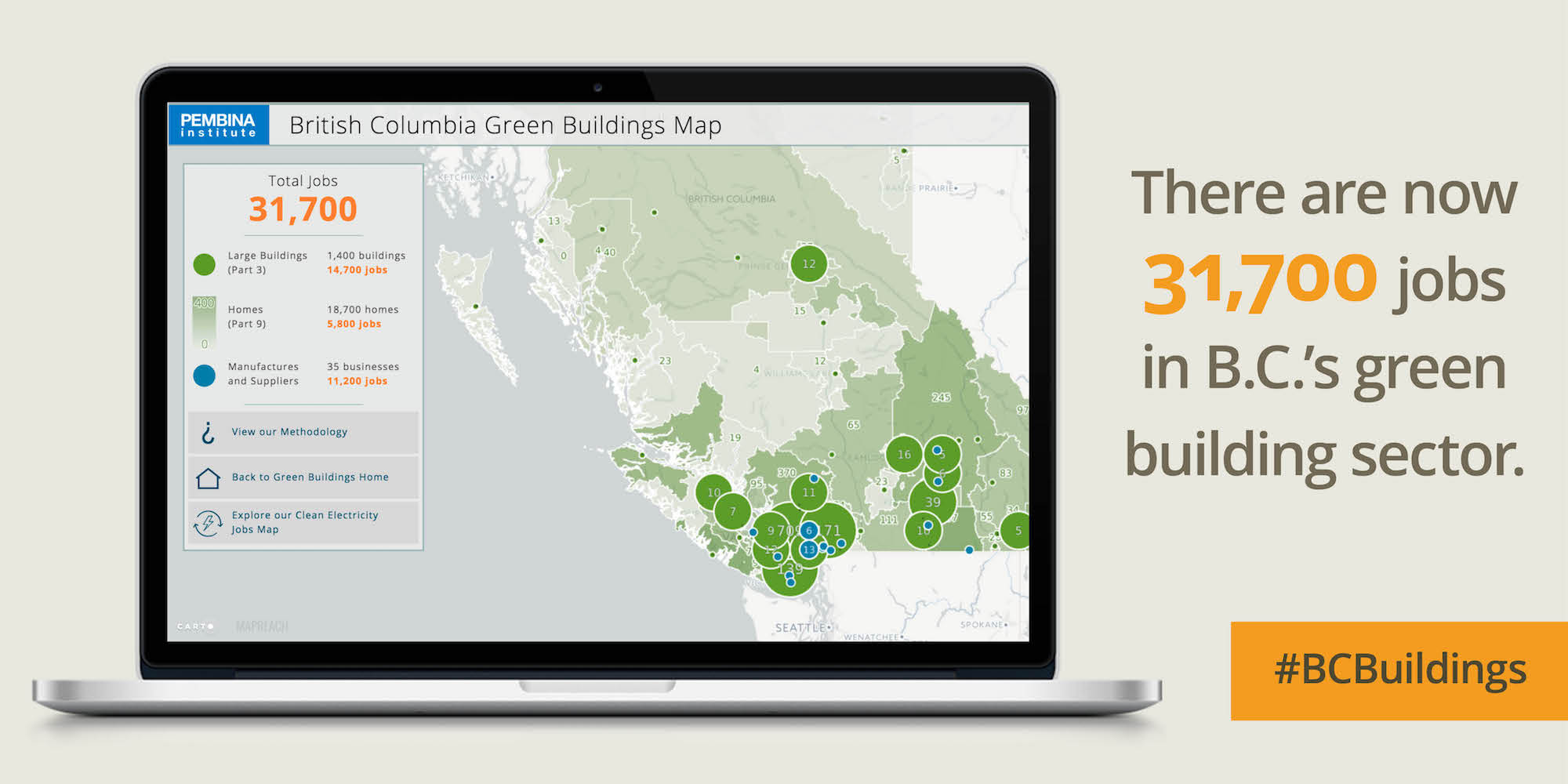VICTORIA / LEKWUNGEN TERRITORY — The Pembina Institute is encouraged by the British Columbia government’s announcement of a key step towards creating a new, more effective climate-change strategy.
Today, Canada’s leading clean energy think-tank welcomed the appointment of Karen Tam Wu to the multi-sector Climate Solutions and Clean Growth Advisory Council, charged with advising the B.C. government and delivering its first public report in one year. Tam Wu is the acting B.C. director at the Pembina Institute, and the director of its Buildings and Urban Solutions Program.
Under Premier John Horgan, the B.C. government has committed to getting the province back on track to its legislated 2050 target for reducing carbon pollution, while setting the stage for a prosperous economy in the coming years. The government has promised to legislate a new 2030 target and establish separate sectoral targets and plans for emissions cuts. It has also pledged to create thousands of jobs through energy-efficiency retrofits.
The world is rapidly shifting to a low-carbon economy, and the costs of climate change are beginning to mount. Building a strong foundation for clean growth is imperative to secure B.C.’s economic competitiveness — and ensure the province’s families and communities aren’t left behind. The previous government’s 2016 climate plan fell short, failing to set a course to B.C.’s 2050 emissions target.
The Pembina Institute has put forward five key priorities for building the clean economy: (1) Build a strong clean tech sector, (2) Position B.C. to be competitive in the changing global economy, (3) Make clean choices more affordable, (4) Stand up for healthy and safe communities, and (5) Grow sustainable resource jobs. A Pembina Institute report, Deep Emissions Reduction in the Existing Building Stock, identifies key elements of an energy-efficiency retrofit strategy for B.C. — a critical component of the climate solution.
Quotes
“In light of the stalled climate action and missed opportunities of recent years, B.C. needs to act swiftly and decisively to ratchet up measures to curb carbon pollution. I look forward to advising the government on how to jumpstart clean growth and secure a prosperous economy, safe communities, and healthy families in B.C.”
— Karen Tam Wu, acting B.C. director at the Pembina Institute, and member of B.C.’s new Climate Solutions and Clean Growth Advisory Council
“Well-designed climate policy can get our carbon pollution under control, help build a strong economy, and ensure low-income, middle-income, rural, and northern British Columbians benefit from clean growth. Today’s announcement is a step toward B.C. securing its economic prosperity as the world transitions to a low-carbon economy.”
— Maximilian Kniewasser, director of the B.C. Climate Policy Program at the Pembina Institute
Quick facts
- B.C.’s clean tech sector earned $1.8 billion in revenue in 2016, up 20% from 2014.
- There are 31,700 jobs in B.C.’s green building sector, and renewable energy projects employ over 14,000 people in B.C.
- B.C. emitted 60.9 million tonnes (Mt) of carbon pollution in 2015.
- B.C.’s legislated emissions targets: 43.5 Mt in 2020 and 12.6 Mt in 2050.
[30]
Note for media: Karen Tam Wu, acting B.C. director at the Pembina Institute, is present for the announcement in Victoria and available for interviews.
Join the conversation on Twitter: #CleanGrowthBC @Pembina
Contact
Stephen Hui
Communications Lead, Pembina Institute
778-987-7654
stephenh@pembina.org
Tw: @StephenHui
Background
Action plan: Vision for Clean Growth in B.C.
Report: Deep Emissions Reduction in the Existing Building Stock
Backgrounder: Liquefied Natural Gas, Carbon Pollution, and British Columbia in 2017
Interactive map: British Columbia Green Buildings Map, 2017 edition
About the Pembina Institute
The Pembina Institute is a non-profit think-tank that advocates for strong, effective policies to support Canada’s clean energy transition. We have offices in Vancouver, Calgary, Edmonton, Toronto, and Ottawa. Learn more: www.pembina.org





